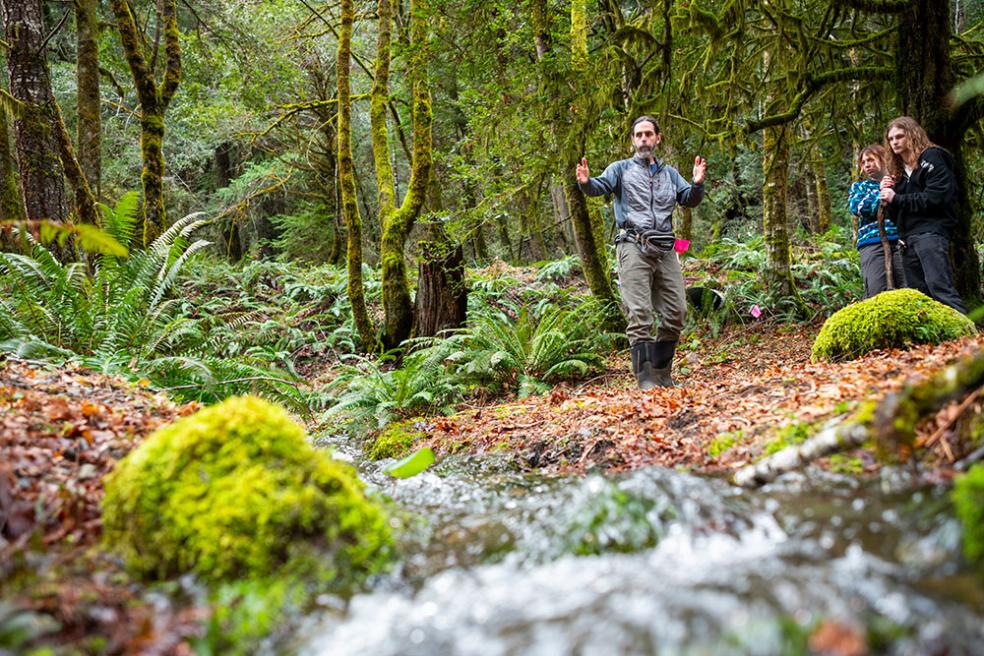
As an active permaculture designer, Mar has been a watershed and farm consultant for over 10 years, and consults with many nonprofits in the region. Most recently, his work with Mendocino County’s Rural Resilience Project (RRP) is allowing for incredible momentum on farms and in the classroom.
The RRP recently received a $3.1 million grant from the California Department of Fish and Wildlife's Cannabis Restoration Grant program, which will provide technical assistance for Mendocino County cultivators to implement sustainable cultivation practices.
For Mar, this project is a perfect opportunity to support cannabis farmers while providing his students with valuable, real-world experience, offering case studies that illustrate the intricate relationship between the cannabis industry and the environment. These insights help students deepen their understanding of the field and explore the various career opportunities their degree can open for them.
As the environmental stewardship lead in the Cannabis Studies program, Mar teaches classes such as Environmental Policy and Regulations, Cannabis and Environmental Sustainability, and a new course this semester, Cannabis and the Environment.
Mar’s goal with the RRP is to make sure cannabis farmers remain ‘qualified cultivators,’ keeping them compliant with various environmental agencies. He visits their farms and evaluates what they are doing well, and where they need resources and support for things like water conservation, habitat restoration, sediment discharge and wildfire mitigation.
“It's so exciting to see an environmental agency like the Department of Fish and Wildlife, who regulates and governs cannabis cultivation, actually putting important resources back into the cycle,” Mar says.
Mar’s experience in the field with regenerative agriculture and the cannabis industry, combined with his role as an educator allows him to engage more deeply with students out in the field, and bring his research to the University to better understand the socioeconomic impacts of programs like this.
“It’s my responsibility as an educator to not only share my knowledge with my students, but to also provide them with relevant experiences to apply that information,” says Mar. “The only way to do that is to take them out into the watersheds that are the venue for our local cannabis industry and observe firsthand the relationship it has with the environment. It’s the same responsibility that I accept in my work. Applying the knowledge that my observations have brought to help create a more sustainable and regenerative cannabis industry.”
Listen to Daniel Mar on a recent episode of the Subsistence Crop Podcast presented by Cal Poly Humboldt’s Cannabis Studies Lab.